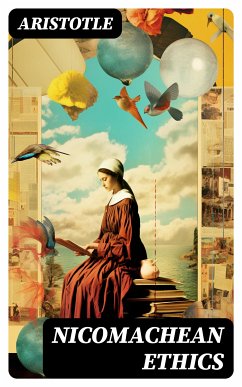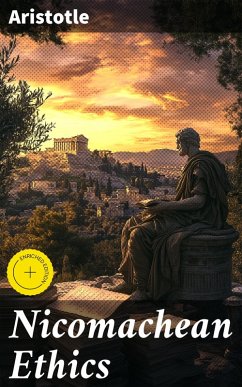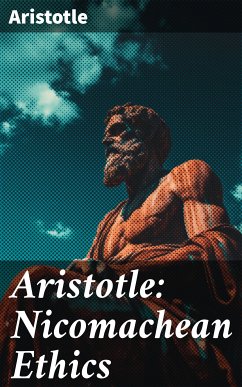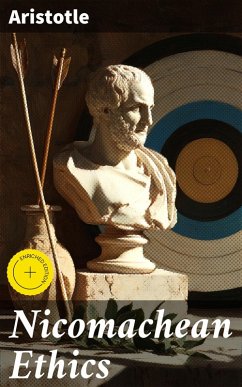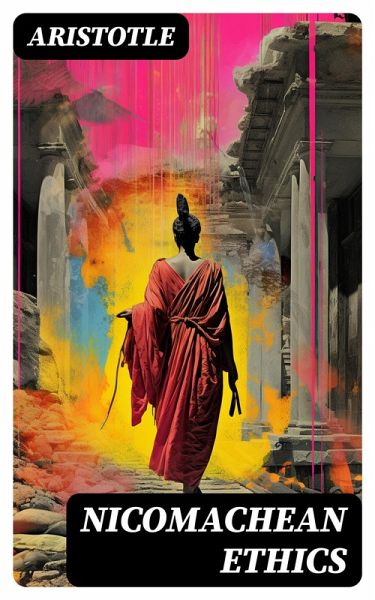
Nicomachean Ethics (eBook, ePUB)

PAYBACK Punkte
0 °P sammeln!
In "Nicomachean Ethics," Aristotle embarks on a profound exploration of moral philosophy, presenting a systematic framework for understanding the nature of the good life. Through a meticulous examination of virtue ethics, the text articulates the concept of eudaimonia (flourishing) as the ultimate aim of human existence. Aristotle employs a methodical approach, emphasizing the importance of character and the role of rationality in ethical decision-making. His literary style combines empirical observation with philosophical rigor, making it a seminal text in both ethics and moral psychology tha...
In "Nicomachean Ethics," Aristotle embarks on a profound exploration of moral philosophy, presenting a systematic framework for understanding the nature of the good life. Through a meticulous examination of virtue ethics, the text articulates the concept of eudaimonia (flourishing) as the ultimate aim of human existence. Aristotle employs a methodical approach, emphasizing the importance of character and the role of rationality in ethical decision-making. His literary style combines empirical observation with philosophical rigor, making it a seminal text in both ethics and moral psychology that has influenced countless philosophers throughout history. Aristotle, a towering figure of ancient Greek philosophy, was a student of Plato and tutor to Alexander the Great. His diverse experiences and keen observation of human behavior deeply informed his ethical theories. Writing in the context of a rapidly evolving Athenian democracy, Aristotle sought to provide a framework that addressed both individual moral conduct and the social dimensions of ethics, thus bridging personal integrity with communal responsibility. "Nicomachean Ethics" is essential reading for anyone interested in the foundations of Western philosophy. Its insights into virtue and practical wisdom remain relevant, inviting contemporary reflection on moral character and ethical living. This work not only challenges readers to pursue a meaningful life but also equips them with the intellectual tools necessary for navigating the complexities of human morality.
Dieser Download kann aus rechtlichen Gründen nur mit Rechnungsadresse in A, B, BG, CY, CZ, D, DK, EW, FIN, F, GR, H, IRL, I, LT, L, LR, M, NL, PL, P, R, S, SLO, SK ausgeliefert werden.




